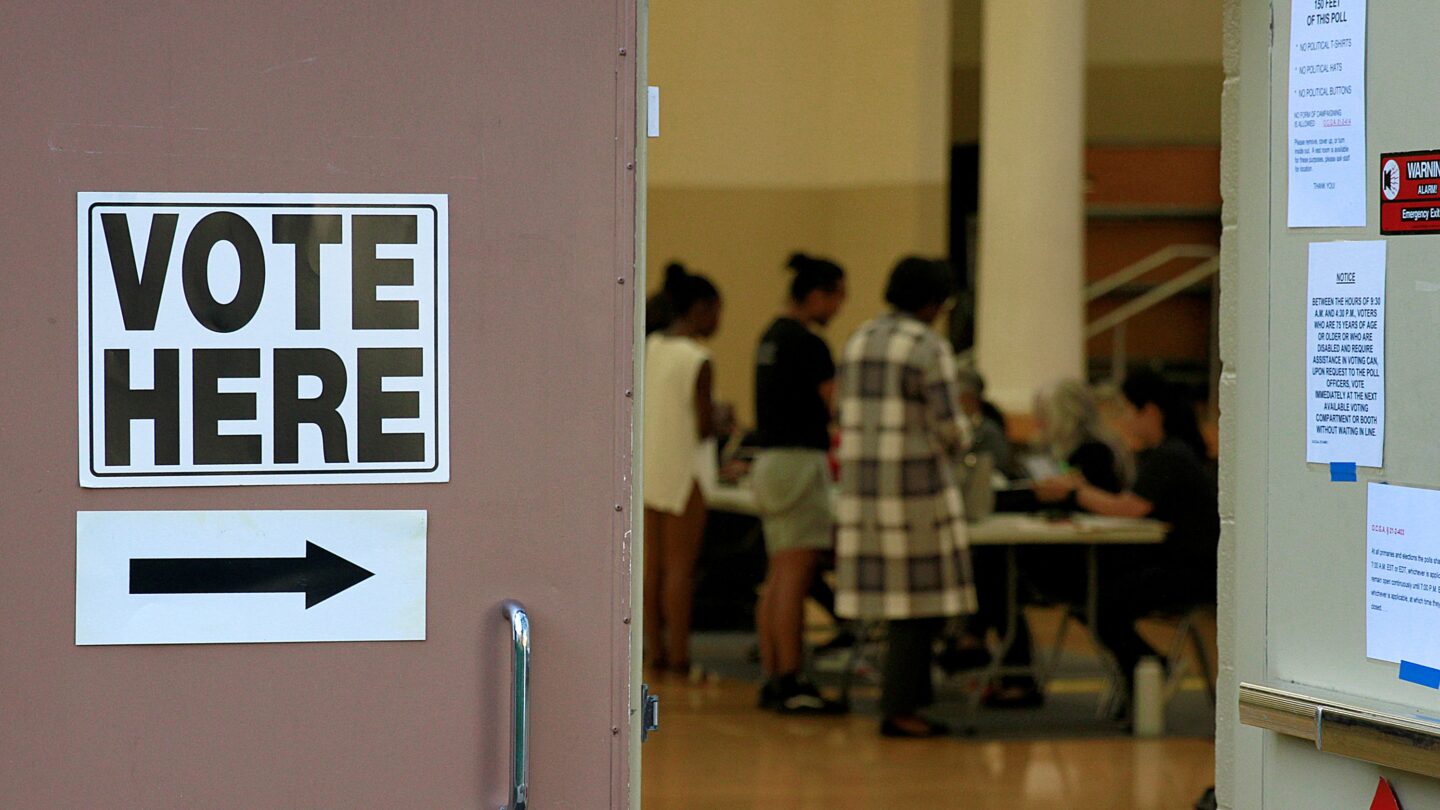5 takeaways from election night in Georgia

This story was updated at 2:53 p.m.
All the vetting, campaign launches, endorsements, speeches, rallies, hundreds of millions of dollars, national attention, mailers, robocalls, texts and ads, ads, ads came down to this — election night in Georgia on Tuesday.
There were several potential outcomes at play. Here’s what we know, what we don’t know and what’s next on this day after one of the most intensely watched elections in Georgia history.
1. Split ticket voters shaped this election.
Republican Gov. Brian Kemp handily won a second term, while Democratic Sen. Raphael Warnock is heading to a Dec. 6 runoff against Republican Herschel Walker.
Walker underperforming Kemp points to a pattern that emerged in polls leading up to Election Day — a significant share of voters backing both the Republican for governor and the Democrat for U.S. Senate.
One reason seems to be Republican-leaning voters who were hesitant to vote for Walker, given the many controversies that dogged his campaign from the start. The mixed results at the top of the ballot show individual candidates and campaigns still matter, even in this highly-partisan moment. The dynamic also highlights the power of incumbents.
2. Georgia is still a Republican-leaning state, for now.
Despite Georgia gaining more than a million new voters since 2018, Kemp improved his margin over Abrams four years ago.
And with the exception of the Senate race, Republicans are poised to sweep statewide offices all the way down the ballot.
Democrats hoped to build on their victories in the last cycle, when they won two U.S. Senate seats and Joe Biden became the first presidential candidate to win Georgia since 1992. But Georgia’s changing demographics alone were not enough to cut away at Republican power, as voters weighed two of the top issues driving voters this year — abortion and inflation.
While Democrats exceeded expectations in other states around the country, Georgia largely stuck with Republican candidates, and Warnock — an incumbent — was likely unable to avoid a runoff even with a flawed opponent.
However, the winning margins for Republicans were not overwhelming.
“Democrats had to swim against inflation, they had to swim against Biden’s unpopularity in the state, so that helped Republicans,” said University of Georgia political scientist Charles Bullock.
“Two years from now, things may change. We’re still very much of a purple state,” he said.
3. But the state also affirmed its importance as a political battleground.
That being said, Georgia may soon again,n be the center of the political universe, should Georgia’s Senate race go to a runoff and if control of the U.S. Senate hinges on its outcome for a second time in two years.
In conceding her race for governor, Stacey Abrams said Democrats’ efforts to activate non-voters and irregular voters in recent elections will continue to shape Georgia politics in the years to come.
“What we have architected in this state does not end today,” Abrams said.
Whatever happens with Georgia’s Senate race, it’s very likely the state is again in play come 2024.
4. GOP 2.0 may be a thing.
Former President Donald Trump stayed out of Georgia during the general election, but his chosen candidate, Herschel Walker was unable to get across the finish line and is likely in a runoff.
And both Brad Raffensperger and Brian Kemp, who had been on Trump’s attack list after the 2020 election, easily won their re-elections.
Lt. Gov. Geoff Duncan, who did not run for re-election and has been one of the few Georgia Republicans openly critical of Trump, said these election results show that the former president’s choice of Walker hurt Republicans.
“We didn’t put the best person forward in my opinion. There were other folks on the ballot that would have been an easier win and we wouldn’t be talking about a runoff now and we would be talking about a Republican majority in the Senate,” he said.
Duncan wrote a book he called “GOP 2.0” where he was looking for a way forward for Republicans without Donald Trump.
5. No room for election deniers or conspiracy theories.
Georgia’s elections ran very smoothly and Secretary of State Brad Raffensperger, who had been attacked after the 2020 elections by Trump allies and election deniers, easily won re-election.
The election process itself also went well, with no long lines and average wait times across Georgia at about two minutes on Election Day.
Georgia counties were also quicker to give election night returns, which helped quash any delays that could have been exploited by conspiracy types.
Gabriel Sterling with the Georgia Secretary of State’s office said they asked counties this time around to not wait to report large batches of results, as they have done in the past, but to enter them quickly as they get processed.
“And we can get the unofficial tallies out there as soon as possible, so we can knock down some of those conspiracy theories.”








